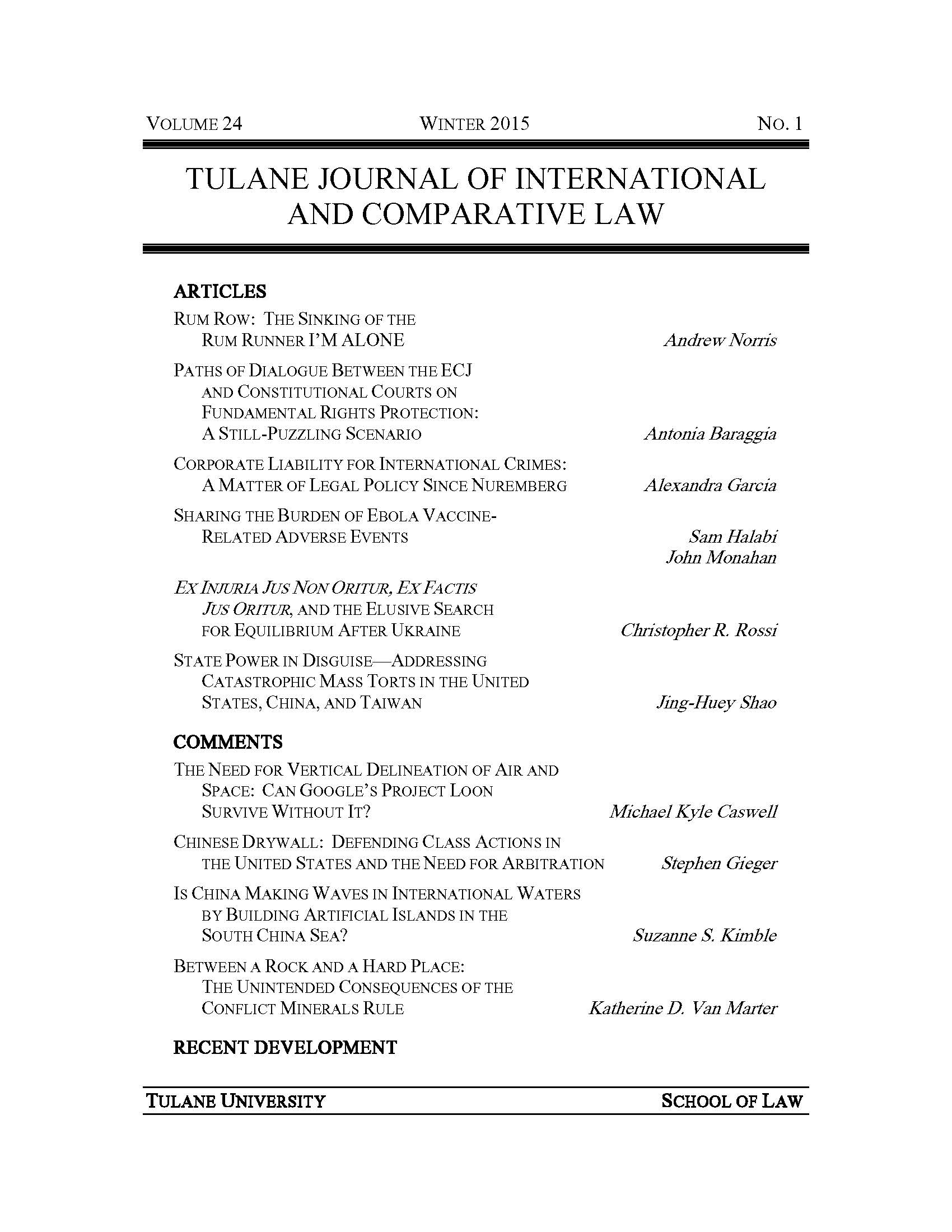State Power in Disguise— Addressing Catastrophic Mass Torts in the United States, China, and Taiwan
Abstract
The Gulf oil leak, Wenzhou High Speed Rail Crash, and Food Safety Scandals—these
benchmark cases in the United States, China, and Taiwan have aroused attention relating to how
these jurisdictions deal with catastrophic cases that involve immense private and public interests.
This Article contends that, actually in many gigantic cases, the mechanism for resolving mass tort
disputes has not been fully implemented and that some other procedures parallel to the court
proceedings were adopted and even replaced traditional private litigation. If monumental cases
with massive influence are often addressed with approaches distinct from general private litigation
process, this indicates that private adjudication or the tort system may have limitations and that
some other forces have driven the application in a different direction.
This Article not only explores the implications of such a phenomenon, but also investigates
whether this is related to the rise and fall of different authorities or powers. It is argued in this
Article that resolving monumental mass tort disputes commonly reflects the preference of
lawmakers not only in the United States, but also in China and Taiwan. In all three jurisdictions,
lawmakers and law enforcers, regardless of their form, tend to reserve power for threats to legal
norms that they consider most important. This is evidenced by the transition in the means by
which mass torts have been addressed after catastrophes.
